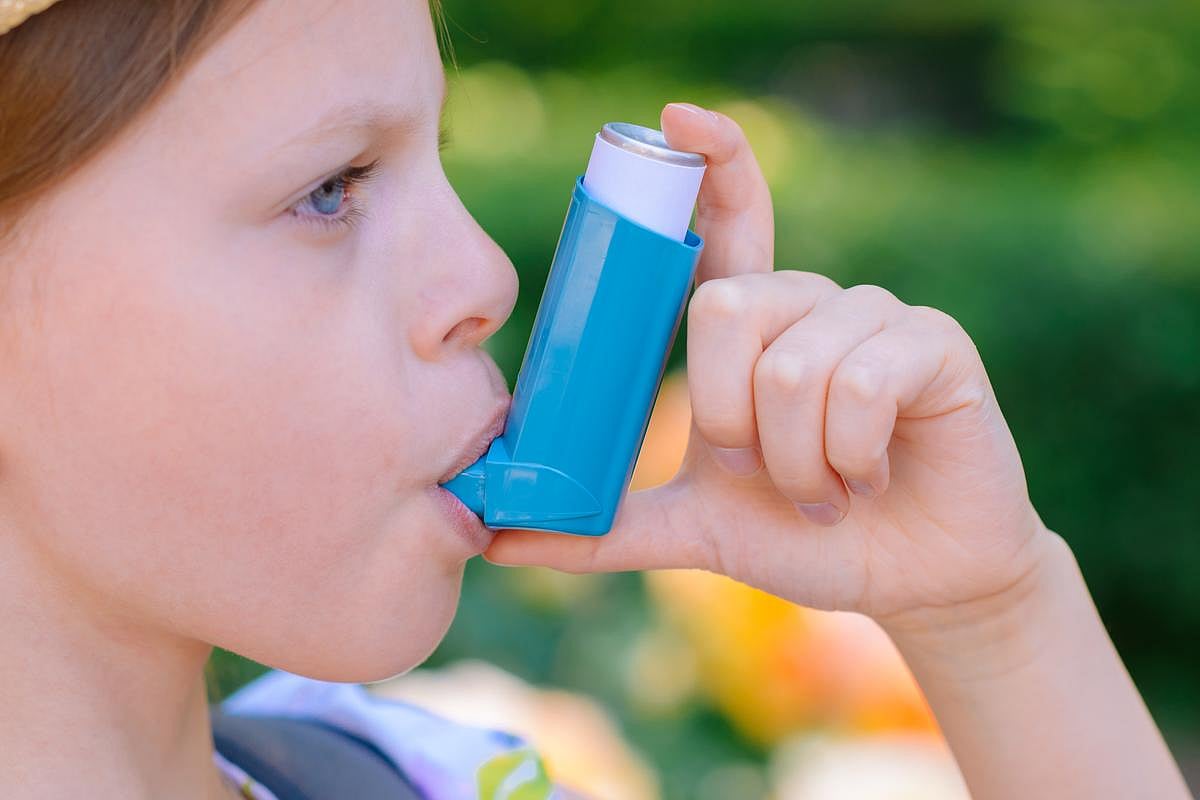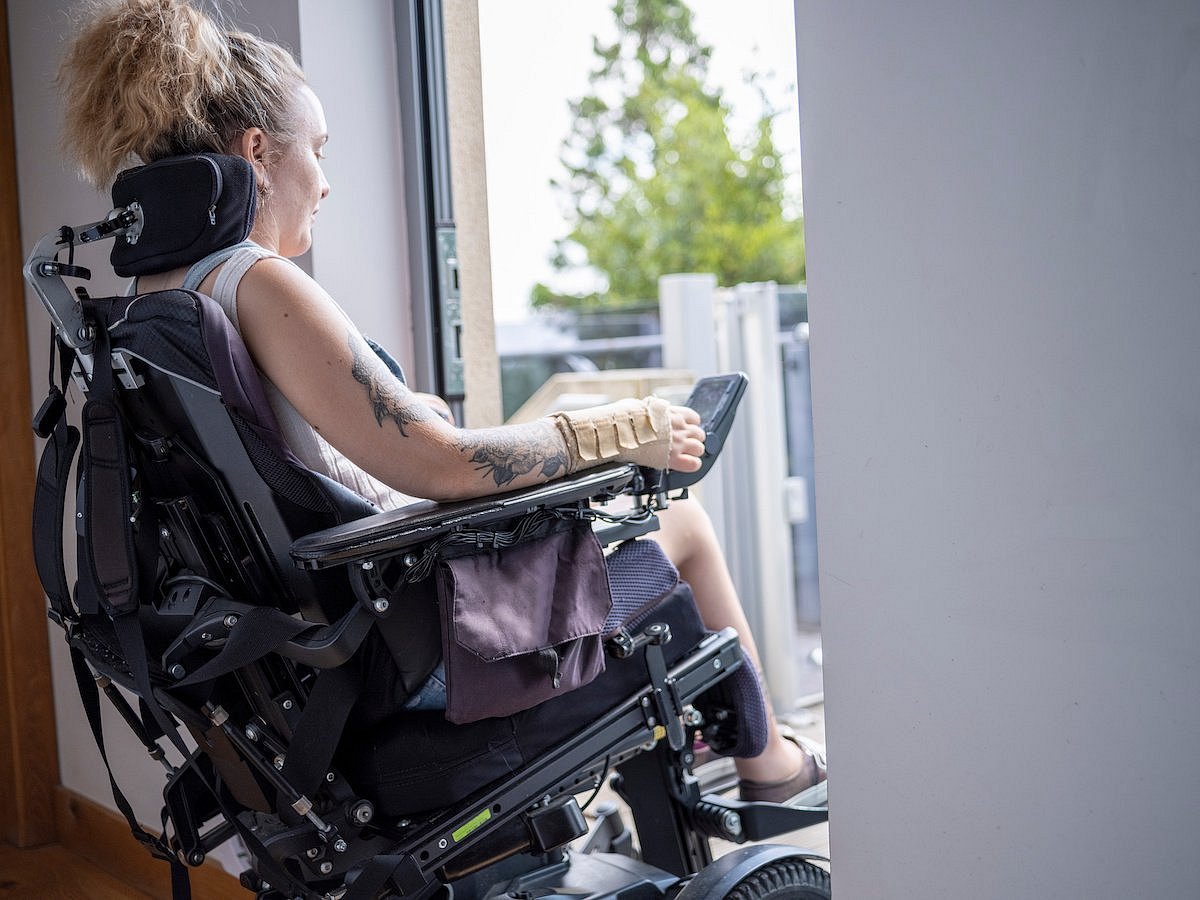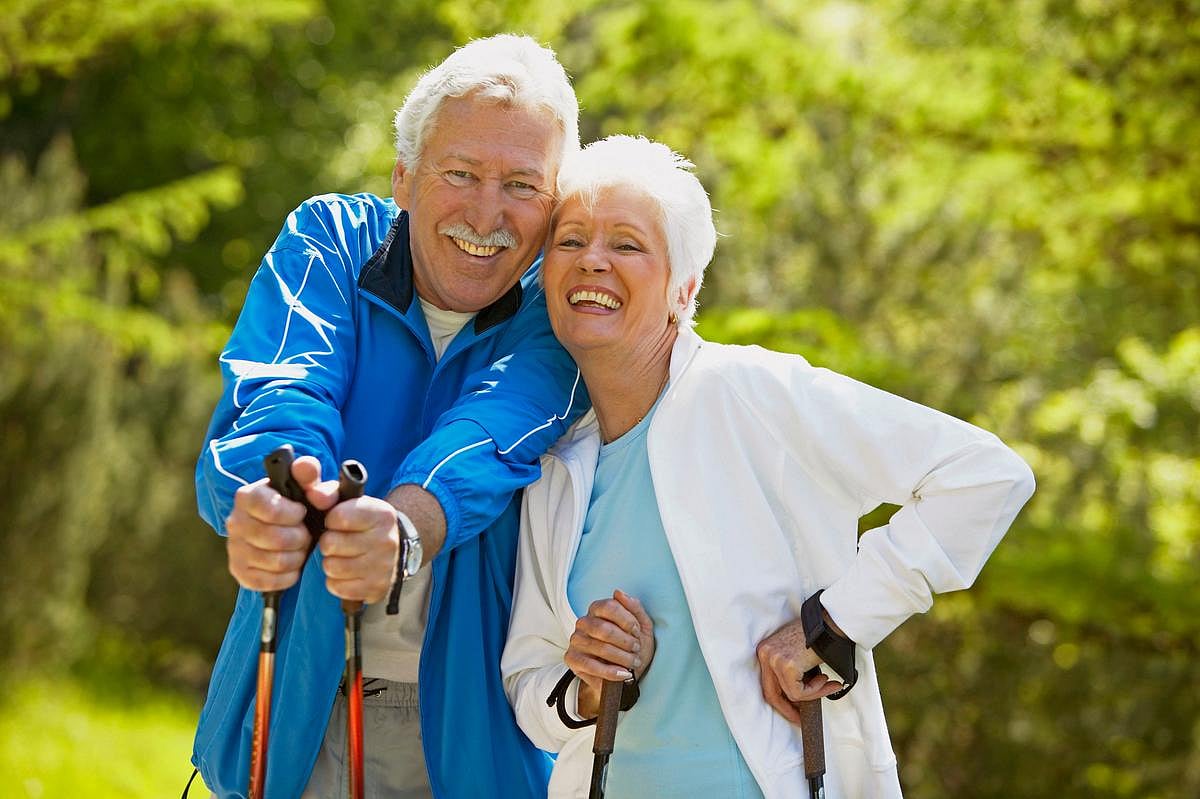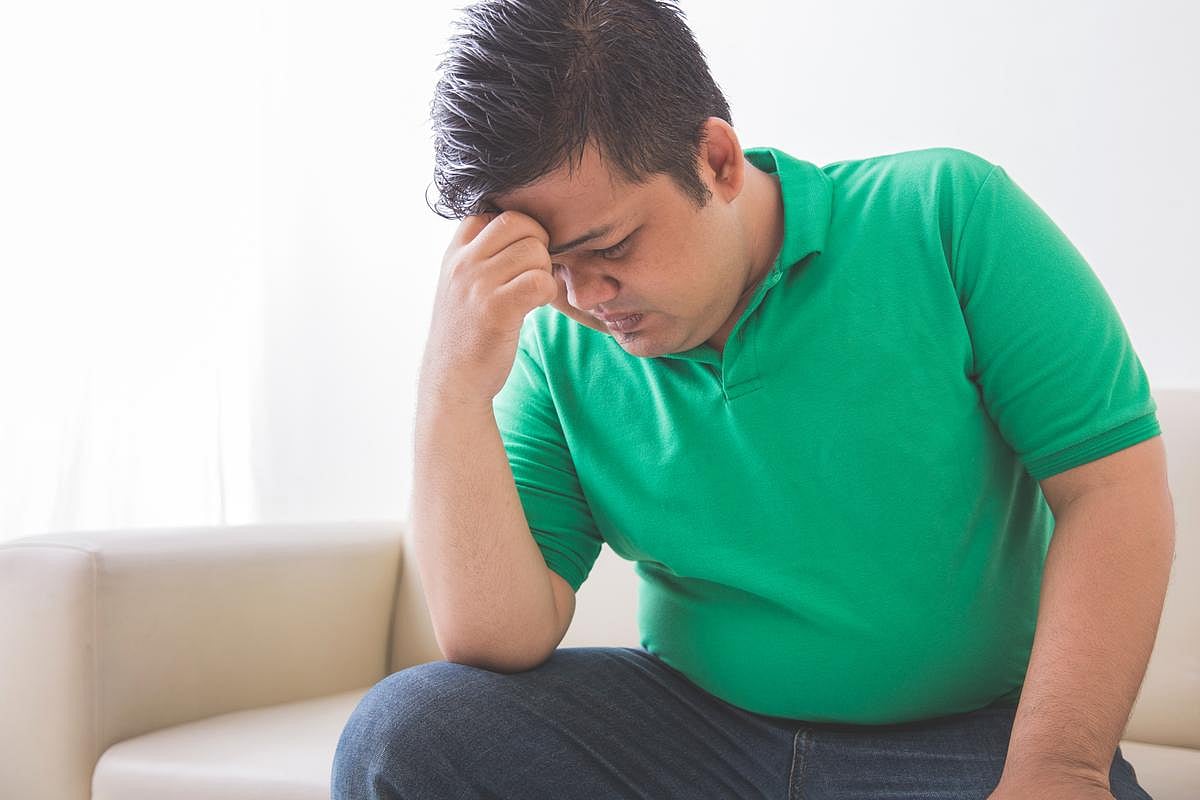Get Healthy!
Staying informed is also a great way to stay healthy. Keep up-to-date with all the latest health news here.
26 Sep
Study of the World’s Oldest Person Reveals Secrets to Longevity
Researchers unlock the molecular secrets behind Spanish supercentenarian who lived 117 years free of cancer, heart disease, and dementia.
25 Sep
Surprising Surge in Memory Struggles Among U.S. Adults Under 40
"Challenges with memory and thinking have emerged as a leading health issue reported by U.S. adults," especially those under 40, according to the author of a new study in the journal Neurology.
24 Sep
Severe Pregnancy Nausea Linked to Major Mental Health Risks
A new study finds women with hyperemesis gravidarum, a severe form of pregnancy-related nausea and vomiting, are more than 50% more likely to develop 13 serious mental health conditions.
Carole Tanzer Miller HealthDay Reporter September 27, 2025
Wildfires in Western U.S. Play a Role in Global Warming, Research Shows
Wildfires are an increasingly common feature of life in American West, and researchers are working overtime to understand how the resulting smoke affects air quality, human health and climate change.
"Wildfires do not emit ozone directly," Jan Mandel, a professor emeritus of mathematics at University of Colorado Denver, said in a news rele... Full Page
I. Edwards HealthDay Reporter September 26, 2025
Tylenol Refutes Old Post as Pregnancy Safety Debate Resurfaces
The maker of Tylenol is pushing back against resurfaced claims that its popular pain reliever is unsafe for pregnant women.
Kenvue, the parent company of Tylenol, issued a statement Thursday after an old and now-deleted 2017 social media post resurfaced suggesting it did not recommend “any of our products while pregnant.” ... Full Page
I. Edwards HealthDay Reporter September 26, 2025
New World Screwworm Parasite Detected in Northern Mexico Near U.S. Border
A dangerous parasite once eliminated in the United States has been detected in northern Mexico, close to the U.S. border.
Mexico’s agriculture ministry confirmed Sunday that an 8-month-old cow in Nuevo León tested positive for New World screwworm. The animal was part of a shipment of 100 cattle from Veracruz, but only one show... Full Page
I. Edwards HealthDay Reporter September 26, 2025
Gene Therapy Slows Huntington’s Disease in Early Trial
A new gene therapy has shown promise in slowing the progression of Huntington’s disease, according to early trial results released Wednesday.
In a Phase 1/2 study, patients given a high dose of UniQure’s experimental therapy AMT-130 experienced a 75% slowing of disease progression after three years, the company said. The therap... Full Page
I. Edwards HealthDay Reporter September 26, 2025
Sprout Organics Widens Recall of Baby Food Pouches for Possible Lead
Sprout Organics has widened its recall of 3.5-ounce Sweet Potato, Apple & Spinach pouches because some lots may contain elevated levels of lead.
The U.S. Food and Drug Administration (FDA) said the recall, first announced Sept. 16, now covers additional lots sold online at Walgreens and through independent retailers in 28 states.
Dennis Thompson HealthDay Reporter September 26, 2025
Dangerous TikTok Challenge Still Active, Five Years Later
Teenagers and young adults are still harming themselves as part of a social media challenge that’s now five years old.
The Benadryl Challenge, which started in 2020 on TikTok, has spread to other social media platforms and is still being attempted by foolhardy young folks, researchers will report Sunday at an American Academy of Pedi... Full Page
Dennis Thompson HealthDay Reporter September 26, 2025
Early MS Patients Fare Worse If They Eat Junk Food
Ultra-processed foods could be making matters worse for people in the early throes of multiple sclerosis (MS), a new study says.
Higher consumption of ultra-processed eats is linked to more frequent relapses in early MS patients, researchers reported Thursday at the annual meeting of the European Committee for Treatment and Research in Mul... Full Page
Dennis Thompson HealthDay Reporter September 26, 2025
Backup Cameras Save Kids' Lives, Study Says
The number of kids hurt or killed by a reversing car dramatically dropped after backup cameras were required in new vehicles, according to a new study.
Cases of children severely injured by a car in reverse fell by half following the 2018 federal mandate requiring backup cameras, researchers will report Saturday at the annual meeting of th... Full Page
Dennis Thompson HealthDay Reporter September 26, 2025
Routine Community Screening Catches Undiagnosed Asthma
Routine screening can help find kids who are suffering from undiagnosed asthma in communities with high levels of the breathing disorder, a new study says.
Asthma screening during well-child visits found that more than two-thirds (35%) of children with no previous diagnosis of asthma had at least one risk factor for the disease, researcher... Full Page
Dennis Thompson HealthDay Reporter September 26, 2025
COVID-19 Damage To Sense Of Smell Long-Lasting And Subtle, Study Suggests
A COVID-19 infection might blunt a person’s sense of smell for years afterward, but so subtly they might not even notice it, a new study says.
In all, 4 out of 5 people who reported that COVID had altered their sense of smell still scored low on a clinical scent detection test taken about two years later, researchers reported in ... Full Page
Dennis Thompson HealthDay Reporter September 26, 2025
Longevity Secrets From The World's Oldest Person
Maria Branyas Morera was the oldest living person in the world when she died at 117 in August 2024, and she passed with one fervent wish.
“Señora Branyas told us: ‘Please study me so I can help others,’ ” Dr. Manel Esteller, chair of genetics at the University of Barcelona School of Medicine, said in a news r... Full Page
I. Edwards HealthDay Reporter September 25, 2025
Are Your Fruits & Veggies Hiding Pesticides? New Study Says Yes
Eating fruits and vegetables is key to good health, but a new study suggests that choosing produce with higher pesticide residues may boost the amount of these chemicals leaching into the body.
Researchers linked the types of produce people eat with levels of pesticides found in their urine.
The results show that eating foods o... Full Page
I. Edwards HealthDay Reporter September 25, 2025
Measles Outbreak Spreads in Arizona-Utah Border Communities
One of the largest measles outbreaks in decades is spreading along the Arizona-Utah border, with dozens of confirmed cases among unvaccinated children.
Southwest Utah has reported 27 cases so far, nearly all in unvaccinated school-age children, local health officials said. Neighboring Mohave County, Arizona, has 42 confirmed cases, includi... Full Page
I. Edwards HealthDay Reporter September 25, 2025
Syphilis in Newborns Keeps Rising, Despite Drop in Adult STI Cases
Sexually transmitted infections (STIs) declined in U.S. adults last year, but syphilis passed from mothers to newborns continued to climb, new federal data shows.
Tentative numbers from the U.S. Centers for Disease Control and Prevention (CDC) reveal a third straight year of fewer gonorrhea cases and a second consecutive year of declines i... Full Page
I. Edwards HealthDay Reporter September 25, 2025
Kids’ Eyes Getting Worse? Air Pollution May Be to Blame
Air pollution is known to raise the risk of heart disease, strokes and breathing problems, but new research suggests it may also harm something else: kids’ vision.
In a study of nearly 30,000 schoolchildren in Tianjin, China, researchers found that kids exposed to higher levels of fine particulate matter (PM2.5) and nitrogen dioxide ... Full Page
Dennis Thompson HealthDay Reporter September 25, 2025
Heart Disease Remains Top Killer Worldwide
Heart disease remains the world’s top killer, causing 1 in every 3 deaths around the globe, a new study says.
Worldwide, the number of heart-related deaths has risen sharply, climbing to 19.2 million in 2023 from 13.1 million in 1990, researchers reported in the Journal of the American College of Cardiology.
Heart dise... Full Page
Dennis Thompson HealthDay Reporter September 25, 2025
Implant Treats Blood Pressure Problems Among Spinal Injury Patients
People with spinal cord injuries sometimes suffer from blood pressure problems, as their brain loses the ability to manage the body’s blood pressure.
This leaves them vulnerable to blood pressure drops that cause fainting or spikes that put them at risk of a stroke or heart attack.
But researchers say a new implant can help res... Full Page
Dennis Thompson HealthDay Reporter September 25, 2025
New Pill Treats Menopause Hot Flashes Without Hormones
An experimental pill can significantly reduce hot flashes and night sweats for women after menopause, a new clinical trial has determined.
Elinzanetant produced a nearly 74% reduction in the frequency and severity of these menopause symptoms within three months, researchers reported recently in JAMA Internal Medicine.
Furthe... Full Page
Dennis Thompson HealthDay Reporter September 25, 2025
Sunny Seniors Can Bounce Back From Poor Well-Being
The march of time may be relentless, but aging is not entirely hopeless if you have the right mindset, according to a Canadian study.
Seniors who lose a step health-wise are capable of regaining their well-being, researchers reported Sept. 24 in the journal PLOS One.
Nearly a quarter of folks 60 or older who initially report... Full Page
Dennis Thompson HealthDay Reporter September 25, 2025
Lights Are Dimming For America's Brain Power, Study Says
A growing number of Americans appear to be losing their brain power, particularly younger adults, a new study says.
The U.S. has experienced a sharp increase in adults experiencing serious problems with memory, concentration and decision-making, researchers reported Sept. 24 in the journal Neurology.
Rates nearly doubled amo... Full Page











.jpg?w=1920&h=1080&mode=crop&crop=focalpoint)














